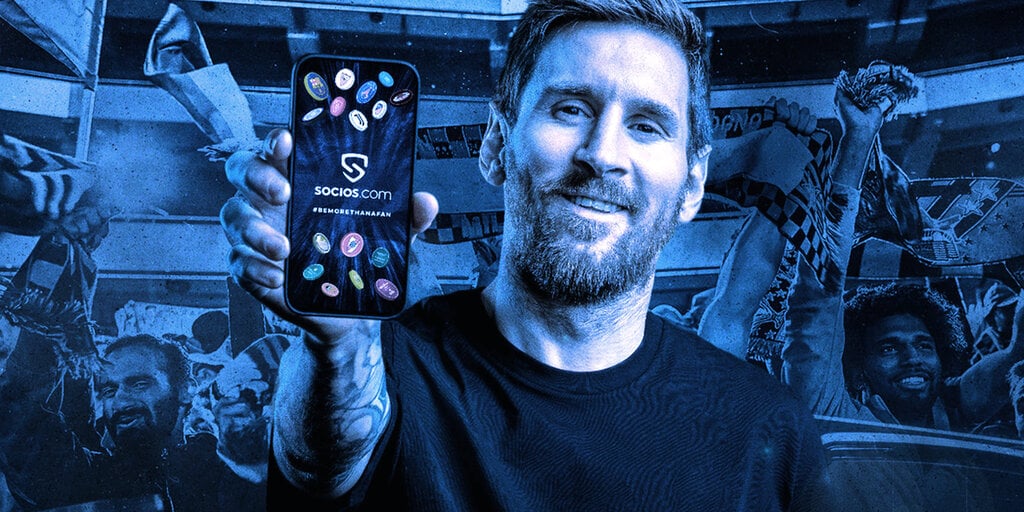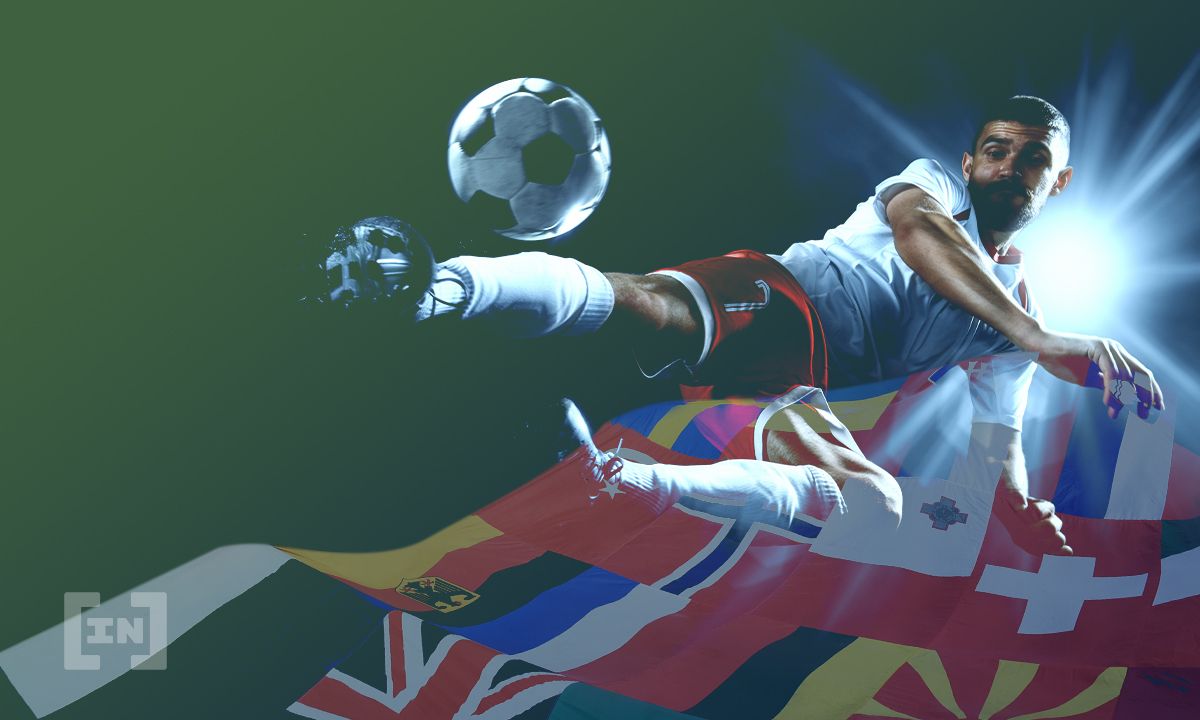The Hype Is Real
🏆 Is this the end?


Welcome to The Hype Is Real where we break down the latest news, stories & happenings around sports & web3.
Here's What You Need To Know This Week:
FTX Is Finished... (Not Sports-Related, Yet Important)
Web3 Sports & Entertainment Company Raises $4.5 Million Seed Round
Lionel Messi Gets Equity In Billion Dollar NFT Game
Let's Dive Into It...
FTX Goes Bankrupt Overnight

Typically, this newsletter is reserved for news around sports and web3, but this event was far too important to not highlight.
Plus, both FTX and Binance have made waves within the sports industry over the past couple of years so technically it still makes sense for me to briefly discuss what just happened this past week.
The long short of it is that FTX, which is one of the most popular cryptocurrency exchanges in the world, faced a major liquidity crunch that was close to completely sinking the company. This was mainly due to access leverage and improper use of customer’s funds.
Binance, who is a major competitor of FTX and another one of the top exchanges in the world, seemed to be lurking in the shadows and initially appeared as if they were going to rescue FTX as they signed an unbinding letter of intent to buy the company.
After Changpeng Zhao, who is the founder of Binance, took a deep dive into the financials behind the company, he ultimately backed out of the deal leaving FTX in dire straights. Here’s a brief rundown of the series of events since:
On Friday, FTX officially filed for bankruptcy
On Saturday, the FTX platform was reportedly hacked for $600 million and users are reporting their wallet balances show up as $0
Sam Bankman-Fried, founder and CEO of FTX, supposedly lost up to 93% of his net worth in a single day. Many crypto advocates and others in the industry currently believe he is on the run from authorities but no one really knows.

Of course, there's much, much more to the story such as the ongoing Twitter feud between Sam Bankman-Fried and Changpeng Zhao over the past few months (read more here) and how this 30-year old crypto founder finagled his way into this situation in the first place, but instead of going into all of that, I want to tie all of this back into sports and why all of this is so critical.
Why does this matter as it pertains to sports?
I mentioned before how both of these companies have had their handprints all over sports.
Especially FTX. Here are some of the deals they've done over the past 2 years:
19-year, $135 million deal for the naming rights for Miami Heat’s home arena last year (Miami Heat terminated their relationship with FTX this past Friday)
10-year, $17.5 million deal to become the naming rights sponsor for UC Berkeley’s football field in August 2021.
FTX is the first MLB umpire uniform patch partner as part of a long-term deal that began in 2021.
FTX also has deals with Formula 1 racing team Mercedes-AMG Petronas along with Buccaneers QB Tom Brady, Angels ace/slugger Shohei Ohtani, and Golden State Warriors star, Steph Curry.
How will all of this turn out for all of the sports properties and athletes involved?
No one really knows yet. It's a situation that's unfolding day by day. But I will leave it at this...
Innovation and mass adoption take time no matter what its for.
"When an innovation is introduced into a market, it takes several years to penetrate it. The adoption typically looks like an S-curve (see below). The adoption curve provides a useful way to break down customers into five segments: innovators, early adopters, early majority, late majority, and laggards."

Looking at this chart compared to crypto and even web3 - we haven’t even reached the early majority yet. It's still so early and much more to build.
And in this time there will be failures, mishaps, bad actors and mega-catastrophes just like this one.
There has been and will continue to be a lot of skepticism around crypto and web3 as a whole and all of it becomes louder and more understandable when situations like this occur.
But as a big believer in the space, I constantly remind myself to keep looking long-term and limit the attention I give to short-term negativity.
Crypto is still volatile. It's still a speculative asset. And it can still completely disappear one day.
But the likelihood of this happening, at least at this current moment, is slim to none even when stuff like this happens.
After all, if some of the smartest and wealthiest people in the world are still in the game - then that's a great sign.
"What the smartest people do on the weekend is what everyone else will do during the week in ten years"

Eterlast Comes Out Of Stealth Mode To Announce Their $4.5 Million Seed Round

A new kid on the NFT sports block, Eterlast, has just raised over $4.5 million to launch out of stealth mode. With roots in London and Barcelona, the startup is aiming to create a new way for fans to engage with sports, teams, and players through NFTs, blockchain games, and immersive experiences.
As we know, sport is one of the world’s most lucrative community-driven industries. It’s a space that's about bringing people together, and there is an entire industry at work connecting inspiring sports stars with their fans – doing so to promote sports, grow fan communities, and give teams revenues.
Even though the thrill of attending a live sports event will probably never be replaced, there is a massively growing market for Web3 gaming and Web3 sports, and it’s only the beginning. Sports NFTs alone are predicted to have grown by 60% by the end of this year and in a decade, it’s thought that the NFT sports collector market will reach $92 million.
In this context, Eterlast, founded by Joan Roure, has come out of stealth with new funding. The startup, which is based between London and Barcelona, has secured about $4.5 million from some of the biggest names in gaming, Web3, and the digital content ecosystem:
The funding was led by Supernode Global.
Additional players:
Play Ventures
Active Partners
Founders Factory
Stake Capital
Immutable X
Why does this matter?
Builders build. Plan and simple.
Whether it's in stealth mode or out in the open, the people who are building in this space will continue to do so despite the bear runs, downturns, and skeptics.
Web3, as a whole, isn't going anywhere and capital will continue to pour into the space.
Lionel Messi Receives Stake In NFT Fantasy Soccer Game Sorare

I feel like Lionel Messi has been in the news a lot recently, but for all of the right reasons. This week was no different. The Paris Saint-Germain forward announced that he is joining the NFT trading card game Sorare as an investor and brand ambassador. Both parties will work together to create new content and fan experiences.
Sorare's platform lets users trade digital player cards and manage teams of five in fantasy soccer tournaments. The cards are NFTs, which ultimately creates “digital scarcity” for each card.
The Paris-based startup, which was last valued at $4.3 billion, has more than 2 million users in over 185 countries and is partnered with over 300 sports teams and leagues including Spain’s La Liga and Germany’s Bundesliga. It has expanded beyond its core focus on soccer recently into other sports, including basketball and baseball.
The partnership with Sorare adds to several notable deals between sports stars and crypto platforms. French soccer player Kylian Mbappe and American tennis legend Serena Williams have previously announced tie-ups with Sorare.
Why does this matter?
I've said it before and I'll say it again. Sports and web3 are the perfect marriage.
Even in times when it seems like nothing is going right in the space, partnerships such as this are still happening. When athletes of this status get behind companies in the industry, it not only helps bring more adopters, it gives hope to the people who have been in it from the beginning.
What To Watch:
To be honest, I've never been a huge fan of Tim Tebow (especially since he was initially against NIL), but I'm always interested in hearing different perspectives from athletes who are in the web3 space.
This is a quick interview he did with Coindesk this week where they discuss athletes getting paid in bitcoin, NFTs, and Campus.io, a college sports NFT platform he co-founded backed by the Solana blockchain.
Check out the full interview below ⬇️
What To Read:
That's all I got for you today. Talk again next Sunday.
Take care,
Malcolm



Reply